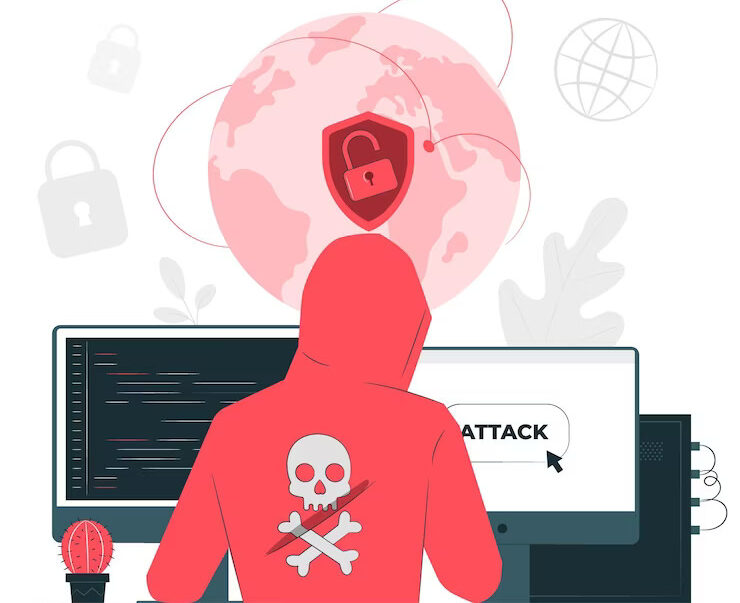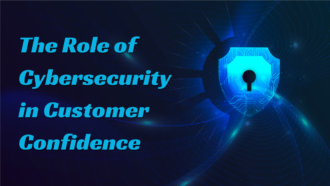How Businesses Can Guard Against Cyberattacks
- 1 How To Protect Businesses From Cyberattacks
- 1.1 Understanding the Threat Landscape
- 1.2 Adopting a Proactive Cybersecurity Strategy
- 1.3 Implementing Robust Security Measures
- 1.4 Employee Training and Awareness
- 1.5 Adherence to Compliance Standards
- 1.6 Regular Audits and Penetration Testing
- 1.7 Creating an Incident Response Plan
- 1.8 Investing in Cybersecurity Insurance
- 2 Conclusion
As businesses continue to embrace digital transformation, the risk of cyberattacks is an ever-present reality. From large corporations to small enterprises, no organization is immune to the potential havoc a cyberattack can wreak. Protecting a business against these digital threats is an ongoing process, requiring an understanding of the risks, implementing robust cybersecurity measures, and maintaining a culture of vigilance. As the frequency and complexity of business cyberattacks continue to rise, it’s crucial to stay ahead of potential threats. Integrating advanced security solutions like passwordless authentication by Kelvin Zero can play a key role in preventing defenses against cyberattacks, providing a secure and efficient way to authenticate users while mitigating the vulnerabilities associated with traditional password-based systems. This article will provide actionable insights on how businesses can fortify their digital infrastructure and protect their valuable assets against cyberattacks.
How To Protect Businesses From Cyberattacks
Understanding the Threat Landscape
Before diving into defensive measures, it’s crucial to understand the cyber threat landscape. Cyberattacks come in various forms, including malware, ransomware, phishing, Denial of Service (DoS) attacks, and more. The damage they inflict can range from data breaches and financial loss to reputational harm, all leading to severe implications for any business. Acknowledging these threats is the first step toward building a strong defense.
Adopting a Proactive Cybersecurity Strategy
A proactive cybersecurity strategy is a cornerstone of any business’s defense against cyber threats. This includes identifying potential vulnerabilities, investing in the right security tools, training employees, and preparing incident response plans. It’s not just about dealing with attacks after they’ve occurred, but preventing them from happening in the first place.
Implementing Robust Security Measures
Ensuring your business has robust security measures in place is crucial. This includes firewalls, intrusion detection systems, encryption tools, and antivirus software. Regular updates and patches to these systems are equally important, as they fix security vulnerabilities and keep the systems current against new threats.
Employee Training and Awareness
Employees often serve as the first line of defense against cyberattacks. Regular training programs to educate them about the latest threats, recognize suspicious activity, and proper security protocols can significantly reduce the risk of a breach. Remember, a single click on a malicious link can lead to a serious security incident.
Adherence to Compliance Standards
Compliance standards, such as the PCI DSS compliance checklist, are designed to ensure businesses follow best practices in securing sensitive data. This particular standard applies to companies that handle cardholder data and offers a comprehensive list of requirements for enhancing payment account data security. Adhering to such standards not only protects your business but also boosts customer trust.
Regular Audits and Penetration Testing
Regular security audits and penetration testing are essential to identify and address vulnerabilities in your system. These proactive measures mimic real-world attacks and expose potential weak points, allowing businesses to take corrective actions before an actual attacker exploits them.
Creating an Incident Response Plan
Despite the best preventative measures, breaches can still occur. Therefore, it’s critical to have an incident response plan in place. This plan should outline the steps to take following a breach, including isolating affected systems, identifying the breach’s extent, informing relevant parties, and restoring normal operations.
Investing in Cybersecurity Insurance
As cyber threats evolve, cybersecurity insurance has emerged as a crucial safety net. While it doesn’t prevent cyberattacks, it helps manage the financial repercussions of a breach, covering costs like system restoration, data recovery, legal fees, and even PR efforts to restore your business’s reputation.
Conclusion
In the face of an ever-evolving threat landscape, businesses must take a proactive stance to guard against cyberattacks. Understanding the threats, implementing robust security measures, training employees, adhering to compliance standards like the PCI DSS compliance checklist, conducting regular audits, and having an incident response plan are all crucial elements of a strong defense. Investing in cybersecurity insurance can further protect against potential financial losses. In the digital age, a solid cybersecurity strategy isn’t an option—it’s a necessity for the longevity and success of any business.


















